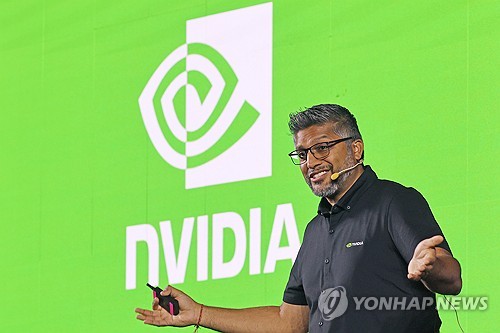
(Seoul=Yonhap Infomax) Gyeong Eun Park = Expectations that Nvidia’s record-breaking earnings would thaw AI investment sentiment proved short-lived, as the initial rally quickly faded.
Comments from a Federal Reserve governor reignited concerns over big tech profitability, reinforcing the view that the market is entering a phase where clear winners and losers will emerge.
Shin Hae Hwang, analyst at LS Securities, said on the 21st, “Despite investment banks raising their outlooks on Nvidia and AI-related stocks, the entire value chain reversed course and deepened losses. Persistent AI bubble concerns, fading rate cut expectations, and Fed Governor Cook’s remarks on potential asset price declines were all reflected in the market.”
Overnight, the New York stock market closed lower amid a tech sell-off. While Nvidia’s blockbuster results initially sent shares soaring, renewed AI bubble fears quickly took hold.
The Dow Jones Industrial Average fell 0.84%, the S&P 500 dropped 1.56%, and the Nasdaq Composite slid 2.16%.
Notably, the Nasdaq surged 2.6% intraday before ending down 2.2%. Nvidia shares, which jumped 5% at the open, closed down 3.2%. Option expiry and algorithmic trading contributed to heightened intraday volatility.
Senior Fed officials voiced concerns over current asset valuations. Fed Governor Lisa Cook stated, “My impression is that the likelihood of a significant asset price decline has increased,” adding, “We assess that valuations across several markets—including equities, corporate bonds, leveraged loans, and housing—are elevated compared to historical benchmarks.”
Despite Nvidia’s earnings showing growth in EPS and revenue, the market responded sharply to warnings about AI companies’ investment spending.
Hwang explained, “The surge in accounts receivable and customer concentration triggered market concerns about a potential asset bubble.”
LS Securities noted that Nvidia’s accounts receivable jumped from $23.07 billion to $33.39 billion, with four customers accounting for over 10% each and a combined 61% of total revenue.
Nvidia’s figures have fueled worries about companies with weak cash generation that must take on debt to sustain investment.
Hwang added, “Hedging against an AI bubble collapse has emerged, particularly around Oracle, which is seen as having the weakest cash generation among big tech AI investors. Oracle’s CDS premium has tripled over the past three months.”
Yoon Cheol Park, analyst at IM Securities, acknowledged that while bubble talk may be excessive, concerns over big tech profitability are justified.
“Ultimately, worries about profitability are valid,” Park said. “In the overheated AI race, hundreds of billions of dollars in spending are already planned, and upward revisions to estimates are likely to continue.”
He continued, “Issuing corporate bonds is a natural step as cash flow pressures mount. Volatility in share prices due to profitability concerns appears inevitable.”
However, Park dismissed suggestions that rising CDS alongside corporate bond issuance could trigger an AI bubble collapse as premature.
“Unlike small and mid-sized AI firms raising funds through rights offerings or convertible bonds, big tech companies have ample cash reserves,” Park explained. “Even if issues arise, government support for AI—a strategic industry amid geopolitical tensions—would be unavoidable.”
He concluded, “At current levels, corporate bond issuance does not signal a bubble collapse. Nvidia’s dominant performance and cash position underpin a robust AI ecosystem, giving the company ample QE capacity.”
gepark@yna.co.kr
(End)
Copyright © Yonhap Infomax Unauthorized reproduction and redistribution prohibited.

